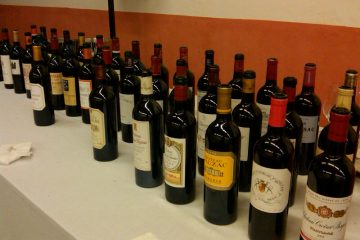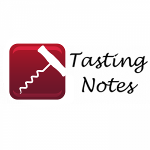For those of us who didn’t get over to Bordeaux this April for en primeur, the much anticipated annual futures market, some winery folks brought their new wines to us. This is the week that favored customers, media, negociants, and retail buyers taste still-in-the-barrel wines. These immature wines, always sampled
Today, more than 12,000 U.S. wine shops have a presence on the web. But just 14 states allow consumers to order wine from out-of-state retailers. Eleven states prohibit residents from ordering wine from out-of-state wineries. Four states ban the sale of wine on Sundays. The overwhelming majority of Americans support
The wine pours with a very light fizz. The nose offers sweet fruit, white peaches and pears. On the palate, the flavors are unripe peach and lime. Lime lingers on the finish. Acidity adds a knife-sharp zing. It's summer in a glass, a moderate alcohol (10%) stone-fruit and citrus refresher
Fo0d-friendly and pretty, this is a Rosé for any summer table. The color is a light salmon pink. The nose is very nice, cherry fondant with a background of dried strawberries and sage. Dry on the palate, the cherry fondant turns into dry cherries, forming a background for strawberries and
Four judges taste a wine. One thinks it's gold-medal worthy. Two say silver. One says bronze. What medal does this wine get? If you guessed "gold," you have probably sat on a wine jury in the United States. This nearly happened on my jury earlier this month -- and I
The Greeks may have been the architects of democracy, but they seem to have taken more time to build reputable wine. The wine history on the island of Crete stretches 3,500 years, but it has only been since 2003 that Crete has achieved a modicum of success. To comprehend this
The nose is sweet, Bing cherries cooked in brown sugar. ON the palate, the flavors are far more tart than sweet, sour cherry and redcurrant lead on the attack. Plum and hints of black fruit show on the mid-palate, along with touches of olive, rosemary, and tarragon. Tannins are big,
It's a brilliant California day and it’s about 1000 degrees in the tasting tent at the annual Napa Valley barrel auction. I'm wilting in a plain summer frock and sandals. But my escort, vintner Jean-Charles Boisset, isn't even breaking a sweat despite being fully rigged out in dark slacks and


